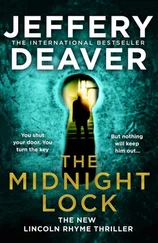For a very long moment not a soul moved.
Then the biggest of the bikers said, “Naw, forget it. Too early for that kind of shit. And I ain’t finished but one beer yet. So I’m not in any mood.”
The leader said, “All I’ll say is why weren’t you looking after your mother? Two grown men like you. Sad. Now, get on out.”
Now the SUV was cruising through a different part of the district.
They were on their way to the Hudson Kings’ headquarters.
They were near the waterfront and Shaw looked out on the dark water at the decommissioned Hunters Point Naval Shipyard, dominated by the massive gantry crane that bore a skeletal resemblance to the battleships whose turrets it lifted off so that the cannon could be replaced fast. A huge civilian and naval shipbuilding and repair facility for more than a hundred years, the yard was now closed and parcels were being sold off for condominiums and commercial buildings — that is, if and when the land was decontaminated. The place was a Superfund toxic waste site and much of it was still tainted, including by radioactive materials. It was from this shipyard that the USS Indianapolis sailed to the Mariana Islands, its cargo parts for Little Boy and Fat Man, the atomic bombs that were dropped on Hiroshima and Nagasaki in August of 1945.
Cleanup was a big business here. Many small craft operated by a company called BayPoint Enviro-Sure Solutions were collecting drums with hazard warnings stenciled on the sides. The workers were wearing so much protective gear, they looked like astronauts laboring on the moon.
Russell turned and steered away from the water. A moment later he pointed to a storefront. “That’s it.”
There was nowhere to park nearby so he drove a block and a half farther, and pulled to the curb. The brothers climbed out and started to walk toward the storefront.
A trio of rats slipped from an abandoned warehouse nearby and nonchalantly vanished into a drain.
“Yo, you buying, man?”
The voice belonged to a skinny young man sitting on an unsteady chair in front of a dubious shop selling prepaid phones and minutes cards, along with vaping paraphernalia. Two figures inside were speaking into flip cells.
The brothers moved on without responding.
Some kids, from teens to mid-twenties, were clustered together on the corner between the brothers and the social club. They were smoking joints, a few cigarettes. The clothing was hoodies and T-shirts and baggy slacks. Their running shoes were nice, and the hairstyles ranged from shaved to elaborate works of art. A few wore medallions, chains and other bling. They looked over the white men walking slowly past and grew energized, whispering and snickering. They were assessing the men as easy targets: beard on one, slim build on another.
Three of the crew broke from the clutch and strode up the sidewalk, stepping in front of and stopping Shaw and his brother.
“You need directions? I give you directions. You know what I’m saying? C-note, and I give you directions.”
“You lost? They lost.”
“What you about, man?” A young man got right in Shaw’s face.
The brothers had no time for a fight.
Never resort to violence unless you have no alternative.
Ashton might have added: especially with foolish teenagers.
Two others joined the trio. The newcomers postured, gesturing broadly with bony hands. The grins were cold.
Courage in numbers isn’t courage.
“I’m talking to you an’ you ignoring me. That rude.”
“Is Kevin Miller around?” Russell asked.
They fell silent.
Shaw said, “It’s all good. We’ve got money for him.”
The skinniest of them — a boy of about fifteen or sixteen — said, “I’ll take it to him. Save you the trouble, you know what I’m saying?”
It was then someone else joined the clutch. A tall, lanky man in his mid-thirties. His face was wrinkled and he bore tats in the shape of teardrops near his eyes. They could signify either a long prison term or that he’d committed murder.
The boys glanced at him with a measure of respect.
“Yo, Kevin!”
“What up, Kevin?”
Signs were flashed, fists bumped.
So this was Tom Pepper’s O.G. — original gangster — one who had earned his colors years ago and managed to survive life on the street.
“My man.”
“Dog.”
Both Shaw and Russell looked at him, holding his gaze steadily. Neither of the brothers said anything. Eyes still on the interlopers, Kevin said to the crew, “Right. Everybody, move off.”
“But...” one protested.
A brief glance was all it took. The kids cast murderous looks toward Shaw and Russell but headed down the sidewalk.
“You wanted me, you got me.” Kevin swiveled back, smooth, looking them over. “You L.E.?”
“We’re not law.”
A squinting assessment. “No. You don’t smell law. How’d you get my name?”
“Tom Pepper vouched.”
Kevin nodded. The teardrop beneath his eye was inked well. A bit of skin showed through the black and gave the image three dimensions.
Russell displayed Blond’s doctored picture. “We’re trying to find this man. He’s got a connection with a crew here, Hunters Point, Bayview.”
“That hair, it ain’t normal.”
Blond’s complexion had grown lighter in death but the hairdo remained as brightly jaundiced as ever.
“I’ve got a thousand, if you help us out.”
“Why here? He’s white.”
Shaw asked, “Don’t you do business with everybody — regardless of race, creed, et cetera.”
Kevin chuckled. “Talk to the rednecks.”
“We did. They don’t know him.”
“Lemme see that picture again.”
Russell displayed it.
The O.G. nodded with a thoughtful frown. “Sorry, brother. No idea. And I’m as connected as they come.”
“Any other crews here?” Russell asked.
“Nothing righteous. Some franchises from Salinas keep flirting with the shorefront, north. They show up, we discourage them. They go away. They come back. You know what it is. All right. I got business.” He looked at Shaw. “Tom Pepper. He was okay. Fair man. Good thing he still with us.”
Kevin returned to the social club, and the men to the SUV. “We could canvass here a week and that’s the only answer we’re ever going to get. There’s got to be a better way,” Shaw said.
“Yeah. Find the courier bag. Use it as leverage to stop BlackBridge.” Russell started the big engine.
Shaw looked out the passenger window. He saw one of the young men who’d confronted them on the street — one of the skinnier, with a shaved head. The kid stood on a pile of rubble about thirty feet away. He reached up under his burgundy hoodie as he stared toward the vehicle with a demeaning smile.
Shaw tensed and his hand went toward his hip.
Russell glanced his brother’s way.
Suddenly, the kid’s hand zipped from under the sweatshirt and, with his fingers formed like a pistol, pointed at Shaw and mimicked firing, the hand jerking back in recoil. The smile vanished. His hand tightened into a fist and the next gesture involved a single finger. He clambered down the rubble heap and vanished.
Shaw said, “Let’s pick up on Ashton’s leads. Burlingame first.”
“Put it in GPS.”
Shaw pulled out his phone, then paused as he looked over the screen. “Not yet. Braxton and Droon are on the move.”
The GPS tracker hidden in the spine of Henry David Thoreau’s meditation on self-sufficiency had led them back to the Tenderloin.
They were not far from where Shaw’s unexpected reward job — to locate Tessy Vasquez — had begun.
Russell parked the SUV in a spot in front of a dilapidated retail storefront, closed now. The window bills pleaded for lessees. A homeless man, wrapped in a gray blanket, slept in the doorway. A few dollar bills peeked from under the corner of his covering. Russell knelt and pushed them out of sight. Shaw had been about to do the same.
Читать дальше
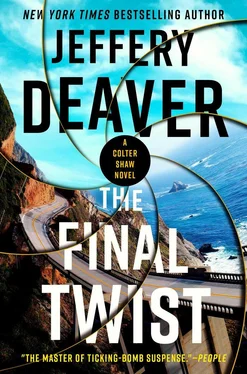
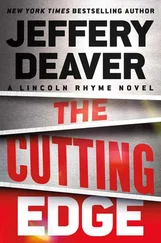

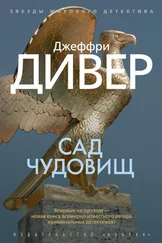

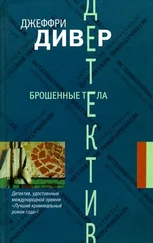

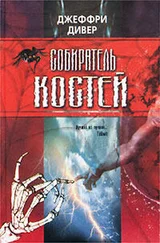
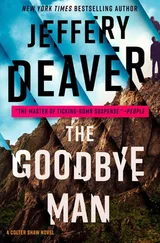
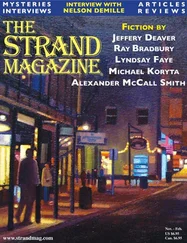
![Джеффри Дивер - Where the Evidence Lies [A Lincoln Rhyme Short Story]](/books/403782/dzheffri-diver-where-the-evidence-lies-a-lincoln-r-thumb.webp)

